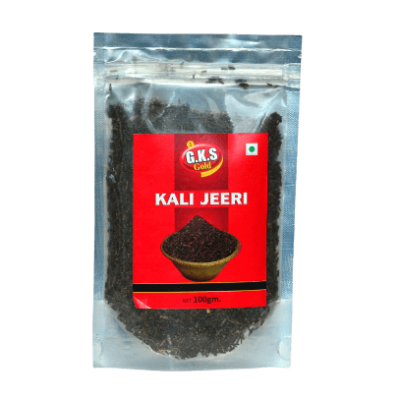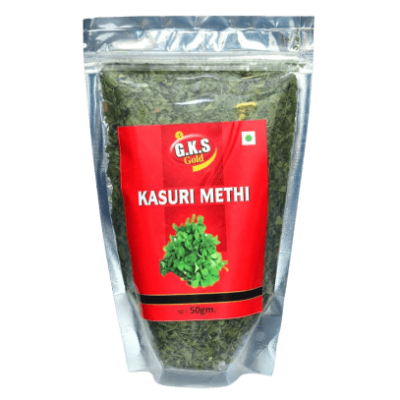6 Impressive Health Benefits of Gymnema Sylvestre
Gymnema sylvestre is a woody climbing shrub that’s native to the tropical forests of India, Africa and Australia.
Its leaves have been used in the ancient Indian medicinal practice Ayurveda for thousands of years.
It has been a traditional remedy for various ailments, including diabetes, malaria and snakebites (1 Trusted Source).
This herb is thought to inhibit sugar absorption and thus has become a popular study subject in Western medicine.
Here are 6 impressive health benefits of Gymnema sylvestre.

Gymnema sylvestre can help reduce sugar cravings.
One of the primary active components in this plant is gymnemic acid, which helps suppress sweetness (1 Trusted Source, 2 Trusted Source).
When consumed prior to a sugary food or beverage, gymnemic acid blocks the sugar receptors on your taste buds (1 Trusted Source).
Research shows that Gymnema sylvestre extracts can reduce the ability to taste sweetness and thus make sweet foods less appealing (1 Trusted Source, 2 Trusted Source).
In a study in fasted individuals, half were given Gymnema extract. Those who received the supplement had less appetite for sweet foods at a subsequent meal and were more likely to limit their food intake, compared to those not taking the extract (2 Trusted Source).
SUMMARYGymnemic acids in Gymnema sylvestre can block the sugar receptors on your tongue, decreasing your ability to taste sweetness. This can lead to reduced sugar cravings.
According to the World Health Organization, more than 420 million people worldwide have diabetes, and this number is expected to increase (3 Trusted Source).
Diabetes is a metabolic disease characterized by high blood sugar levels. It’s caused by the inability of your body to produce or use insulin effectively.
Gymnema sylvestre is considered to have anti-diabetic properties.
As a supplement, it has been used in combination with other diabetes medications to lower blood sugar. It’s also called gurmar, which is Hindi for “destroyer of sugar” (4 Trusted Source).
Similar to its effects on your taste buds, Gymnema sylvestre can also block receptors in your intestines and thus sugar absorption, lowering your post-meal blood sugar levels.
Scientific proof of Gymnema’s ability to lower blood sugar is insufficient to recommend it as a stand-alone diabetes medication. However, research shows strong potential.
Studies suggest that consuming 200–400 mg of gymnemic acid reduces the intestinal absorption of the sugar glucose (4 Trusted Source).
In one study, Gymnema appeared to improve blood sugar control in people with type 2 diabetes by lowering blood sugar levels (5).
The study concluded that reducing blood sugar after a meal resulted in a decrease in average blood sugar levels over time. This could help decrease long-term complications of diabetes (5).
For people with high blood sugar or a high HbA1c, Gymnema sylvestre can help reduce fasting, post-meal and long-term blood sugar levels. However, if you’re taking blood-sugar-lowering medications, consult with your doctor first.
SUMMARYGymnema sylvestre has anti-diabetic properties and may lower your blood sugar levels after a meal.
Gymnema’s role in insulin secretion and cell regeneration may also contribute to its blood-sugar-lowering capabilities.
Higher insulin levels mean that sugar is cleared from your blood at a faster rate.
If you have prediabetes or type 2 diabetes, your body tends to not make enough insulin, or your cells become less sensitive to it over time. This results in consistently high blood sugar levels.
Gymnema sylvestre may stimulate insulin production in your pancreas, promoting the regeneration of insulin-producing islet cells. This can help lower your blood sugar levels (6 Trusted Source, 7 Trusted Source).
Many traditional drugs help increase insulin secretion and sensitivity. However, herbal therapies are gaining momentum in drug development.
Interestingly, metformin, the first anti-diabetic drug, was an herbal formulation isolated from Galega officinalis (8 Trusted Source).
SUMMARYGymnema sylvestre appears to contribute to favorable insulin levels by increasing insulin production and regenerating insulin-secreting islet cells. Both can help lower blood sugar levels.
Gymnema sylvestre may help lower “bad” LDL cholesterol levels and triglycerides.
While Gymnema gets its fame from lowering blood sugar levels and reducing sugar cravings, research shows that it may also influence fat absorption and lipid levels.
In one study in rats on a high-fat diet, Gymnema extract aided weight maintenance and suppressed the accumulation of liver fats. Also, animals fed the extract and a normal-fat diet experienced lower triglyceride levels (9 Trusted Source).
Another study found that Gymnema extract had an anti-obesity effect on animals fed a high-fat diet. It also decreased blood fat and “bad” LDL cholesterol levels (10 Trusted Source).
In addition, a study in moderately-obese people showed that Gymnema extract decreased triglycerides and bad “LDL” cholesterol by 20.2% and 19%, respectively. What’s more, it increased “good” HDL cholesterol levels by 22% (11 Trusted Source).
High levels of “bad” LDL cholesterol and triglycerides are risk factors for heart disease.
Therefore, the positive effects of Gymnema sylvestre on LDL and triglycerides levels may contribute to a lower risk of heart conditions (6 Trusted Source, 8 Trusted Source).
SUMMARYResearch supports that Gymnema can play a role in lowering “bad” LDL cholesterol and triglyceride levels, which can decrease your risk of heart disease.
Gymnema sylvestre extracts have been shown to aid weight loss in animals and humans.
One three-week study showed reduced body weight in rats given a water extract of Gymnema sylvestre. In another study, rats on a high-fat diet that were fed a Gymnema extract gained less weight (10 Trusted Source, 12).
What’s more, a study in 60 moderately-obese people taking a Gymnema extract found a 5–6% decrease in body weight, as well as reduced food intake (11 Trusted Source).
By blocking sweet receptors on your taste buds, Gymnema sylvestre may cause you to eat fewer sweet foods and consume fewer calories.
A consistent calorie deficit can result in weight loss.
SUMMARYGymnema sylvestre may play a role in weight loss and prevent weight gain. It may promote reduced calorie intake.
Inflammation plays an important role in your body’s healing process.
Some inflammation is good, such as when it helps protect your body from harmful organisms in cases of injury or infection.
Other times, inflammation may be caused by the environment or the foods you eat.
However, chronic low-grade inflammation can contribute to various health issues (13 Trusted Source, 14 Trusted Source, 15 Trusted Source, 16 Trusted Source).
Studies have confirmed the link between excessive sugar intake and increased inflammatory markers in animals and humans (17 Trusted Source, 18 Trusted Source, 19 Trusted Source).
The ability of Gymnema sylvestre to reduce sugar absorption in your intestines may also allow it to decrease inflammation caused by excess sugar intake.
What’s more, Gymnema appears to have anti-inflammatory properties of its own. This is thought to be due to its content of tannins and saponins, which are beneficial plant compounds.
Gymnema sylvestre leaves are considered immunostimulatory, meaning they can regulate the immune system, reducing inflammation (8 Trusted Source).
People with diabetes not only suffer from high blood sugar and insulin resistance but may also have decreased antioxidant levels, which can contribute to inflammation (6 Trusted Source).
Due to its anti-inflammatory properties, Gymnema sylvestre can help those with diabetes and high blood sugar in a variety of ways, including by fighting inflammation.
SUMMARYThe tannins and saponins in Gymnema have anti-inflammatory properties that help fight inflammation.






Reviews
There are no reviews yet.